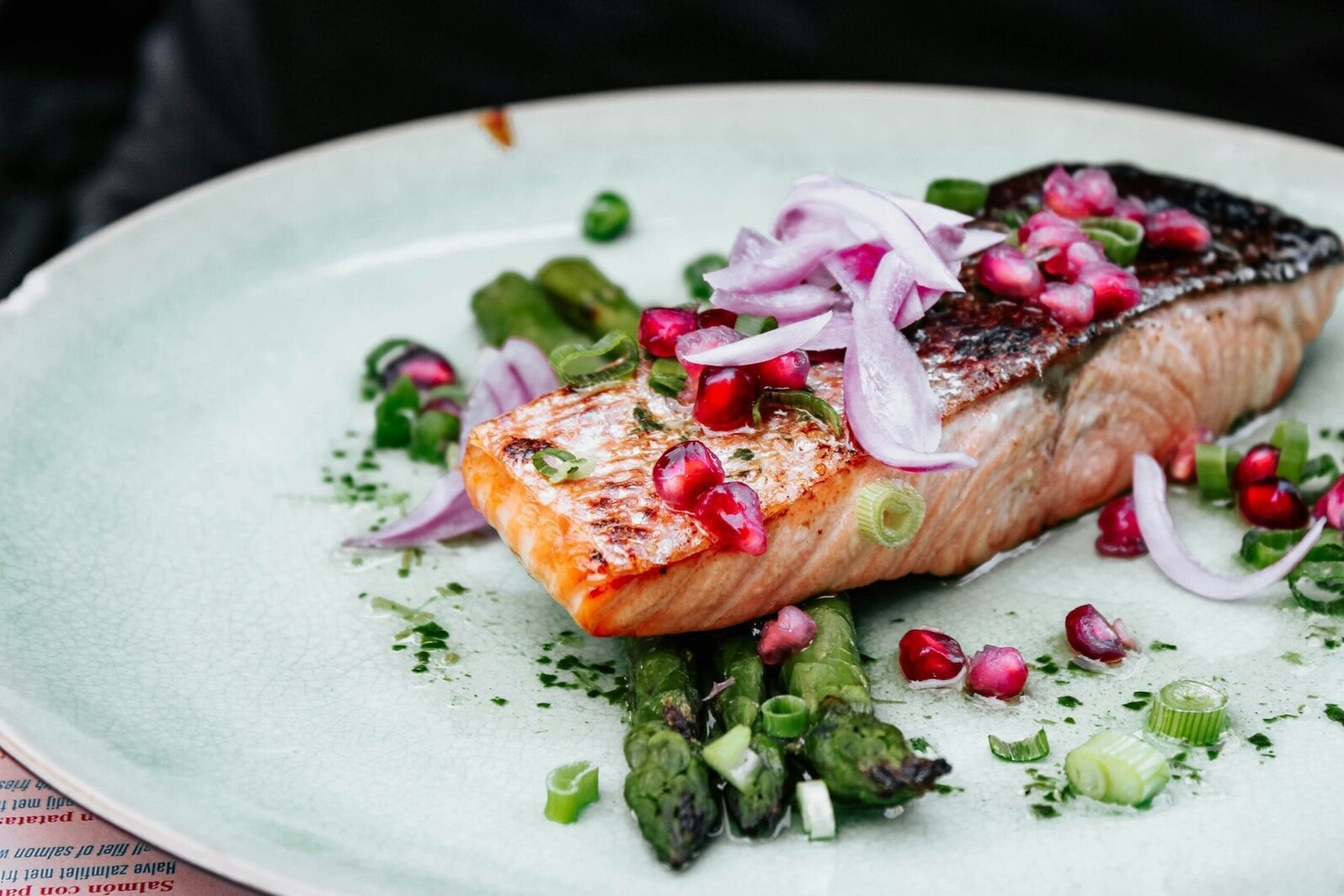When it comes to foods that do more than simply fill you up, salmon swims ahead of the pack. This oily fish is rich in omega-3 fatty acids (notably DHA and EPA), selenium, and astaxanthin, a powerful antioxidant carotenoid. These nutrients earn salmon its reputation as a functional food, that is, a food that goes beyond basic nutrition to actively support better health.
I eat salmon often to support my heart and brain health. On the days I don’t, I turn to a high-quality omega-3 supplement, mainly for cognitive support. Why? Because I carry a specific genetic variant called APOE ε4, which increases my risk of developing late-onset Alzheimer’s disease. So I’m constantly thinking about ways to protect my brain through nutrition and lifestyle choices.
The science behind salmon and the brain
Emerging research suggests that people with the APOE ε4 variant may not absorb or transport DHA (docosahexaenoic acid) to the brain as efficiently as others. DHA is a critical structural fat in the brain and is essential for cognitive function. According to Yassine et al. (2022), those with APOE ε4 may need a higher intake of DHA from diet or supplementation to compensate for reduced uptake and utilization.
What makes this even more interesting is that DHA doesn’t just passively benefit the brain. It actively reduces neuroinflammation, supports the integrity of the blood-brain barrier, and may slow down age-related cognitive decline. In short, it’s a crucial nutrient for brain longevity, and salmon happens to be one of the richest natural sources.
The mercury dilemma: A genetic catch-22
But here’s the dilemma. While I want to eat more salmon for its brain-protective benefits, I also need to be cautious about potential mercury exposure. Larger fish, especially certain farmed or non-wild-caught varieties, can accumulate mercury, a heavy metal that poses a risk to the nervous system.
Now add genetics into the mix again: my detoxification pathways (particularly those involving glutathione metabolism and phase II liver detox enzymes) are not as efficient, according to my nutrigenetic profile. This means my ability to process and eliminate heavy metals like mercury is sub-optimal.
So, what do I do? I opt for wild-caught salmon in moderate amounts, choose sustainably sourced fish when possible, and supplement with omega-3s. I also support my detox pathways through foods rich in sulforaphane (like broccoli sprouts), vitamin C, and targeted supplements.
Key takeaways for brain health and functional nutrition
- Salmon is a functional food offering omega-3s, selenium, and antioxidants that support heart, brain, and cellular health.
- DHA is critical for cognitive health, especially for individuals with the APOE ε4 variant.
- Mercury exposure is a valid concern, particularly for people with impaired detox pathways.
- Personalised nutrition matters: Nutrigenetics can help guide smarter food and supplement choices.
Functional foods are powerful, but their benefits can become even more profound when tailored to your unique biology. So while salmon may be great for most people, knowing your genetic risks can help you make better choices, and that’s what evolving health is all about.
Did you know that you can test your Omegas to find out your balance ratio? Find out more, email hayley@keepevolvingsa.com.
References
Yassine, H. N., Finch, C. E., & Tan, Z. S. (2022). APOE and DHA in brain aging and Alzheimer’s disease. Frontiers in Aging Neuroscience, 14, 899148. https://doi.org/10.3389/fnagi.2022.899148
Landry, M. J., Crimarco, A., Gardner, C. D., & Fielding-Singh, P. (2023). Omega-3 fatty acids: Updated evidence on cardiovascular and cognitive health. Advances in Nutrition, 14(2), 320–334. https://doi.org/10.1093/advances/nmac064
